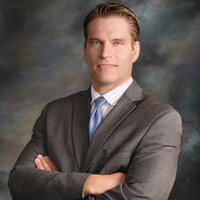 South Haven Felony Lawyers, Michigan
South Haven Felony Lawyers, Michigan
Sponsored Law Firm
-
 x
x

Click For More Info:
-
Goldman & Associates
615 Griswold St. Suite 1325 Detroit, MI 48226» view mapProbate Over 30 Years Experience
Accessibility, responsiveness, and personal commitment is our approach to client representation.
800-797-8031
Sponsored Lawyers
1-1 of 1 matches
Criminal, Misdemeanor, Felony, Child Custody, Adoption
Don was born and raised in Kalamazoo, Michigan and graduated from Kalamazoo Christian High School in 1989. He attended Hope College in Holland, Michigan and graduated with a BA in Psychology/Sociology in 1993. In 1994, Don went to work as a child abuse investigator with the Michigan Department of Social Services, where he assisted hundreds of abused and neglected children and their families. In 2000, Don was promoted to management, making him the youngest Children's Protective Services Supervisor in Michigan at that time. In 2002, Don graduated magna cum laude and earned his juris doctorate degree from Michigan State University - Detroit College of Law in East Lansing, Michigan. In 2006, he went to work with the Kalamazoo County Prosecutor's Office, where he prosecuted felonies and misdemeanors in district and circuit courts. He also handled mental health commitment hearings in the Kalamazoo County Probate Court and the Kalamazoo Psychiatric Hospital. When out of the office, Don enjoys spending time with his wife, Mindie, and two children. Don is a coach for his children's soccer, basketball and baseball teams and is a Sunday School teacher at Haven Church in Kalamazoo. Don is also involved in the Kalamazoo County Bar Association as the co-chair of the Young Lawyer's Section. He also enjoys working out and practicing Brazilian Jiu-Jitsu.
(more)


 Akiva Goldman Detroit, MI
Akiva Goldman Detroit, MI AboutGoldman & Associates
AboutGoldman & Associates Practice AreasExpertise
Practice AreasExpertise

